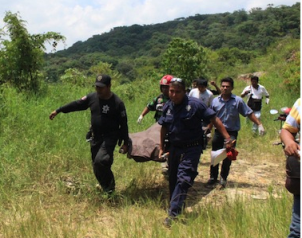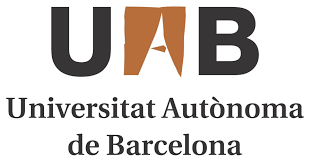
By Daniela Del Bene.
Noé Vasquez Ortiz was preparing the opening ceremony of the Annual Meeting convened by Mapder (Movimiento Mexicano de Afectados por la Presas en Defensa de los Ríos) when he was killed on the 2nd of August in Amatlán de los Reyes, state of Veracruz. He was collecting flowers, herbs and seeds in the Cerro de la Cruz for the ritual opening of the meeting, when he was brutally tortured and assassinated by four men. According to Mapder, the Ministerio Público de Amatlán refused the denunciation of the murder on the same day, Noé’s family was not properly informed by the authorities and many more irregularities have been observed (http://www.mapder.lunasexta.org/?p=2580). The activists also denounced that the security of the event was not guaranteed by the police forces, contrary to what the Governor of Veracruz had promised. Mapder leaves no doubt that Noé was targeted for his several years long struggle for rivers and local communities and against large dam projects like the Naranjal dam on the Rio Blanco.
Noé was a craftsman, a defender of the nature and culture in the Veracruz region for many years and an active member of Colectivo Defensa Verde Naturaleza para Siempre. This forms part of Mapder, a network of villages and villagers, indigenous communities and environmental justice organisations formed ten years ago in the area of the Parota dam, in the state of Guerrero but drawing on precedent meetings in Guatemala and Honduras of lots of communities and activists from Central America.
In a press release issued after Noé’s death, MAPDER explains that hydroelectric dam projects have increased since 2010 in Veracruz. So far they have tried in fact to install 112 private dams in the state. In Mexico, it’s been calculated that between 1936-2006, 4200 large dams have come up and forced 185,000 people to move out of their homes and territories (http://www.mapder.lunasexta.org/dictamenfinal.pdf). Since 2011 the hydroelectric project El Naranjal threatens the territory of Amatlan de los Reyes and seven municipalities of the region that would affect nearly 30,000 people, including Noé’s community. It is the largest dam in the state, it would have a capacity of 360MW. Mapder, denounces that as a result of the protests, there is an atmosphere of intimidation against those opposing hydroelectric and mining projects in the area (http://www.radiomundoreal.fm/6967-urgent-solidarity-with-mexican?lang=es). Mapder national spokesman, Cesar Ramirez, said the dam construction lobby in the country is extremely strong and includes the CFE (Federal Commission on Energy) and Conagua (National Water Commission), that also promoted the Water Dialogues on water and climate change during the Cancun COP16 where dams have been declared key strategies for energy generation and climate mitigation (http://www.d4wcc.org.mx/index.php?lang=en).
Despite the tragedy, Mapder decided not to cancel the meeting; in times of threat and violence, it’s more and more important to join forces and respond firmly. The program (http://www.mapder.lunasexta.org/programa.pdf) of the event was dense and had different purposes, from legal assistance and guidelines to new tendencies in dam constructions, small hydropower and its risks, the role of private companies under the discourses of energy self-sufficiency, From the thematic meetings, it clearly emerged the need to bridge struggles and actions not only against the dams, but also against the mining industry, and against their development paradigm. The movement strongly questioned the structural reforms in the energy sector and the high power tariffs. In particular, a mobilisation has been proposed in September against the energy reform the government unveiled this week and which will lure private investors into the oil, gas and electricity industries.
Gustavo Castro of Friends of the Earth Mexico explained in an interview to Radio Mundo Real that the great challenge of the movement now is to face private corporations building up dams rather than the government. Ten years ago in fact, the World Bank and bilateral banks used to give funds to governments while now private companies are given to right to generate their own power. This entails privatization of rivers, of surface waters and appropriation of indigenous land. Moreover, the discourse in defence dams has change, in favour of so-called small barrages which supposedly cause no harm to the environment and to the communities. This is not the case, as Castro explains, because many of them are not small at all and the damages are all there.
After ten years of struggle, Mapder’s members have gathered stronger than ever this year in Amatlán de los Reyes. Ten national delegations and six international have joint expertise, knowledge and strategies, have shown solidarity, have honoured the memory of Noé and demonstrated that fear will not overcome. In mourning and deep indignation, they are aware of the next coming challenges and ready to respond to intimidations (http://www.mapder.lunasexta.org/?p=2572). Solidarity has come from all over the world. As his people say, Noé has not been buried but given back to the land so that he can bloom again and give strength to the struggle.
Please join Mapder in signing these petitions demanding justice:
Centro de Derechos Humanos Miguel Agustín Pro Juárez A.C. To the Mexican authorities:
Joint petition to the authorities:
http://www.mapder.lunasexta.org/?p=2568
To listen the interventions to the Mapder event: http://www.livestream.com/lostejemedios
This website has compiled a long list of environmental actvists that were killed all over the world: http://66.147.244.135/~enviror4/people/environmental-murders/
Photo Credit: Cuartoscuro





This is another dramatic prove that the dominant system is pushing and expanding the space transforming the non-capitalist systems of life into “fuels” to feed the global market of consumption. Noe’s legacy is undoubtely an inspiration for keeping and increasing the resistance of societies which have the legitimate right to decide how to live in their space
Prof Pedro Arrojo wrote a letter to the Mexican ambassador in Spain demanding justice for Noé.
See here, http://www.mapder.lunasexta.org/?p=2633